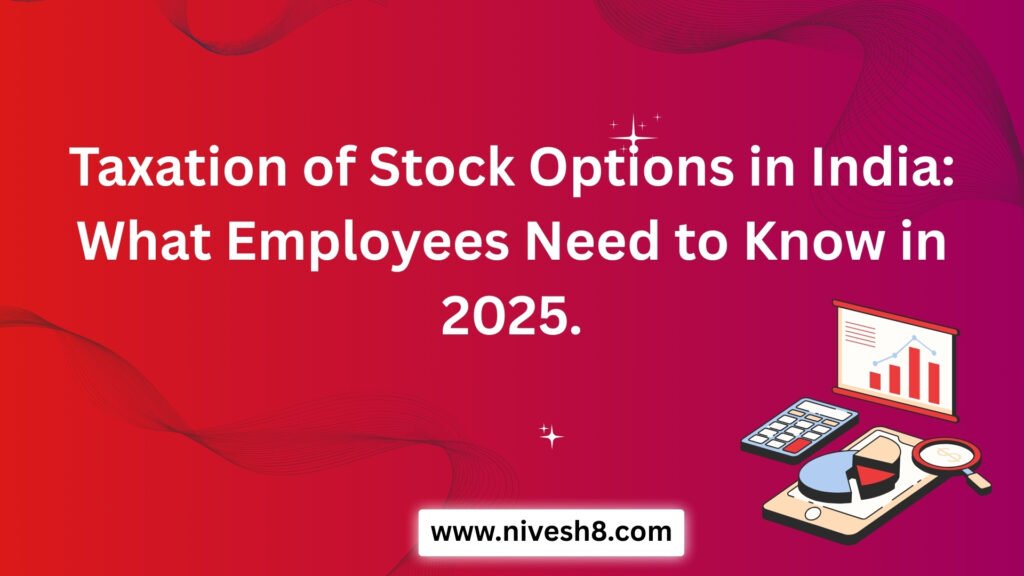As part of their pay package, many startups and businesses nowadays give staff stock options. Having a piece of the company you work for sounds great, but taxes can get a little tricky. Thus, let us simplify the taxation of stock options in India. Knowing how stock options are taxed will help you avoid surprises and better plan whether you are employed for a big company or a startup.
Describes Stock Options
Also referred to as ESOPs (Employee Stock Option Plans), stock options give workers the right to purchase company shares at a set price going forward. The concept is to thank staff members and let their personal development help the business.
How Indian Taxation of Stock Options Works
Two phases make up the taxation of stock options:
- During Exercise: Right Now
When you choose to purchase the shares—known as “exercising your option”—the difference between the fair market value (FMV) on the date of exercise and the exercise price is handled as a perquisite—part of your pay.
- Paid as pay income, taxed
- Part of your overall income
- Paid in line with your income slab
- Paid as pay income, taxed
- For instance:
- Exercise cost: ₹100
- Exercise date’s FMV: ₹300
- Excellent value: ₹300 – ₹100 = ₹200 per share
- Exercise cost: ₹100
- Your pay is increased with this ₹200, which is then taxed.
- During the Sales Period
Should you subsequently sell the shares, your profit is classified as capital gain.
- Short-Term Capital Gain (STCG): Should shares be sold in less than twelve months, taxed at 15%, for listed shares.
- Long-Term Capital Gain (LTCG): Should sales follow twelve months, tax-free first ₹1 lakh; taxed at 10% for listed shares above that.
- Short-Term Capital Gain (STCG): Should shares be sold in less than twelve months, taxed at 15%, for listed shares.
- The holding period for unlisted shares is 24 months, and tax rates could vary. LTCG.
Tax Relief for New Companies
On ESOPs, recognised startups benefit from a tax deferral:
Tax on the perquisite (at exercise) can be postponed for up to five years, or until the employee leaves or sells the shares—whichever comes first for eligible startups.
This is exclusively for startups registered under DPIIT under particular criteria.
For startup staff, this increases ESOP appeal and tax-friendliness.
Files to Save for Tax Filing
- ESOP allocation and exercise information
- FMV certificate (for unlisted companies) from a registered valuer
- Information on sales transactions and capital gain computations
- Broker comments, should sold shares be listed
Last Notes
You can choose wisely whether to exercise now, wait, or sell later by understanding the taxation of stock options. Good planning allows ESOPs to be a wonderful means of wealth building. Remember, though, taxes are paid in two phases and being ready will help you save money and avoid stress.
See a tax advisor—especially if you deal with startup ESOPs or significant gains—when in doubt.

